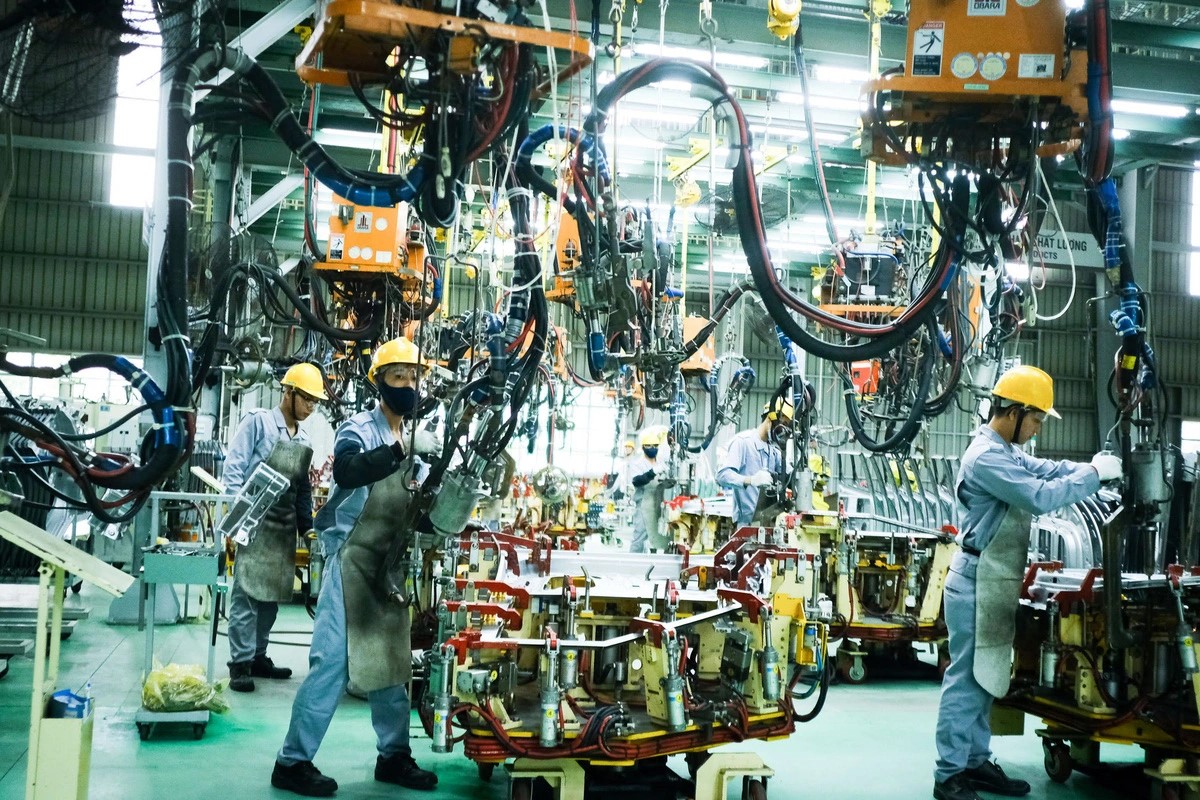Vietnam's Ministry of Industry and Trade aims to increase vehicle sales to 1-1.1 million units by 2030, up from the current 302,000 automobiles, with car ownership currently at 63 vehicles per 1,000 people.
The ministry has released a draft decision from the prime minister outlining the 'Development Strategy for Vietnam’s Automotive Industry to 2030, with a Vision to 2045.'
The draft proposes a strategy to develop Vietnam’s automotive industry by focusing on 'leapfrogging' the latest trends in production and consumption.
This approach is meant to transition from fossil fuel-powered vehicles to more sustainable options, including fuel-efficient vehicles, electric vehicles, hybrid vehicles, solar-powered vehicles, biofuel vehicles, and vehicles using other new sustainable fuels.
Expected three-fold consumption, volume increase
As per the draft, the automotive industry will see groundbreaking development in research, trade, and technology transfer for electric vehicle manufacturing and assembly projects, utilizing new environmentally friendly energy sources.
Every model will optimize their possibilities, and connect with promoting the growth of domestic consumption on a sufficiently big market scale.
The draft outlines ambitious targets for the automotive industry, targeting an average market growth rate of 14-16 percent annually by 2030.
This growth is expected to drive total vehicle consumption to approximately 1-1.1 million units.
A significant focus is placed on electric, hybrid, and solar-powered vehicles, with a target of reaching 350,000 units.
The draft projects a robust rise in domestic assembly, with an annual growth rate of 18-20 percent.
By 2030, domestic production is anticipated to reach between 600,000 and 700,000 units, with a consumption volume of 302,000 units already recorded in 2023.
By 2045, the automotive market is projected to grow at a rate of 11-12% annually.
This growth is expected to bring the total number of vehicles to between 5 and 5.7 million units.
Notably, electric, hybrid, solar-powered, and green fuel vehicles are anticipated to make up a significant portion of this total, ranging from 4.3 to 4.4 million units, which would account for 80-85 percent of the market.
Statistics from the Vietnam Institute of Industrial and Trade Policy and Strategy indicate that the whole sector produces roughly 460,000 vehicles annually, with trucks and passenger buses at 215,000 units, and mid-sized automobiles at 200,000 units.
Aiming for US$36 billion by 2045, the plan specifies an export objective for transport vehicles, components, and automotive parts by 2030 to reach $14 billion.
Vietnam wants to start manufacturing several significant components in the drivetrain, transmission, and engine by 2030, attaining a supply capacity of 55-60 percent in terms of value for components and parts for domestic automotive manufacture and assembly.
The Vietnamese automotive sector aims to be a significant global and local supplier of components and parts by 2045, with a view to shaping the industry and meeting 80-85 percent of the domestic demand for spare parts and components used in automobile manufacturing and assembly.
Prioritizing environmentally friendly vehicle development
The Ministry of Industry and Trade will focus on developing various vehicle types, including trucks and buses with over 10 seats, small utility agriculture trucks specific to rural work, mid-sized coaches, and short-distance vans.
For personal vehicles, emphasis will be on compact, fuel-efficient, electric, hybrid, and solar-powered cars, as well as those using biofuels and other green energy sources for vehicles up to nine seats.
Special-purpose vehicles, such as concrete mixer trucks, tankers, military vehicles, and multifunctional agricultural trucks, will also be encouraged to meet specific industry demands.
Vietnam plans to utilize innovative technology to produce key automotive components such as drivetrains, transmissions, engines, and vehicle bodies, enabling the country to play a pivotal role in the global automotive supply chain and manufacture vehicles domestically.
To achieve these goals, the Ministry of Industry and Trade has introduced a plan to establish design and manufacturing centers for automobiles in all three regions of Vietnam.
Th scheme includes developing a transition roadmap from fossil fuel vehicles to electric vehicles, prioritizing policies for the production, assembly, and import of electric cars.
The ministry targets the development of necessary infrastructure, such as charging stations, refueling stations, transformers, and a technical standards system.
The ministry has introduced a series of policies designed to boost domestic consumption.
These measures include special consumption tax incentives and reduced registration fees for hybrid electric vehicles (HEV), plug-in hybrid electric vehicles (PHEV), and battery electric vehicles (BEV).
The ministry is offering support for customers’ parking fees and environmental taxes related to electric vehicles as well as the use of new energy sources.
To further bolster the industry, there are initiatives aimed at developing supporting industries, enhancing human resources, and advancing science and technology.
Like us on Facebook or follow us on X to get the latest news about Vietnam!


















































